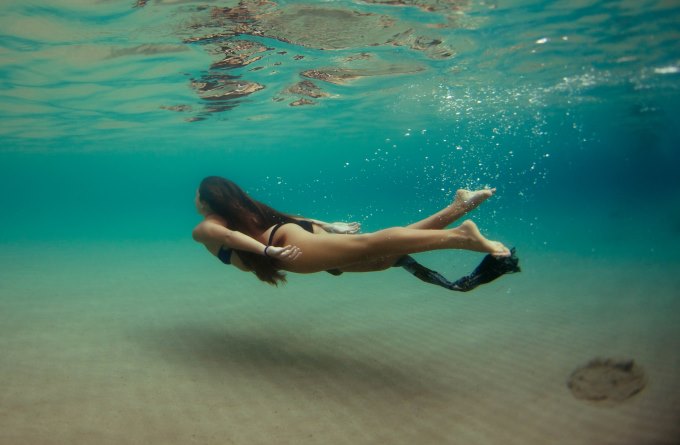UNESCO Publishes First Status Report on Ocean Sciences and Research

Ocean sciences are led by a small number of industrialized countries even though its research and management should be a global priority. This is one among the many findings of the First Global Ocean Science Report, compiled by UNESCO’s Intergovernmental Oceanographic Commission.
The Global Ocean Science Report: The Current Status of Ocean Science around the World, was presented at the United Nations in New York on 8 June, World Ocean Day, as part of the United Nations’ Ocean Conference taking place until 9 June 2017. The Report advocates increased investment into research and calls for greater international scientific cooperation.
“The publication marks a turning point in that it is the first such tool developed to help inform countries’ and stakeholders’ decisions and investments in favour of the ocean. It will also play a major role in assessing progress towards meeting Sustainable Development Goal 14, adopted by the United Nations to preserve the key resource that the ocean represents for humanity as a whole,” declared UNESCO Director-General Irina Bokova.
The Report’s first observation is that ocean sciences are expensive since sounding the seas requires costly ships and equipment, satellite imaging, underwater robots or remotely controlled vehicles. Only industrialized countries can afford such investments and the largest ocean research budgets today are to be found in Australia, France, Germany, the Republic of Korea and the United States of America.
According to data in the Report, the share of national scientific budgets allocated to the ocean varies from 0.1% (Russian Federation) to 21.4% (Argentina). The share of research and development budgets dedicated to ocean sciences also varies a great deal, ranging from 0.04% (Ecuador) to 4.7% (Croatia). The other leaders in this area are Norway, the Republic of Korea, Thailand and Trinidad and Tobago.
The private sector’s contribution to ocean research has indeed grown with a number of merchant ships collecting data for scientific projects. Also, non-governmental organizations such as the Prince Albert II of Monaco Foundation and The David and Lucile Packard Foundation are funding ocean science or preservation programmes.
Specialized institutions and laboratories play a leading role in the study of subjects such as marine biodiversity and ecosystems, water acidification or the impact of human activity on coastal environments. Most of these institutions are situated in Brazil, Canada, France, Germany, Japan, the Republic of Korea, the United Kingdom and the U.S.
These research centres tend to specialize in their respective countries’ priority areas. Thus, Finland, India and Norway have many institutions that specialize in fishing, while Argentina, France, Italy, Kuwait and the Russian Federation tend to focus on ocean observation.
Research ships are an important element in marine research in as far as they give scientists access both to coastal areas and to the high seas. A total of 371 such ships plough the world’s seas. Fifty-one of them fly the U.S. flag, 29 are Japanese, 28 German, 27 Turkish, 26 Korean (Republic of Korea), 20 Canada, 20 Italian and 18 French.
Disparities are also considerable when it comes to human resources. China has the largest contingent of people employed in marine sciences totalling 38,000 scientists and technicians. It is followed by the United States of America (4,000 researchers), Germany (3,300), France (3,000), Republic of Korea (2,400) and Italy (2,100).
Interestingly, women researchers are more numerous in the marine sciences than in the sciences as a whole. In 2013, women accounted for 38% of ocean scientists, 10% more than in other areas of scientific research. In Angola, Argentina, Croatia, Ecuador and Suriname, more than half the marine researchers are women.
The Report also includes information about the number of scientific publications dedicated to the ocean, as a gauge of this sector’s importance. Between 2010 and 2014, 3,72,852 such works were published. With 33% of publications, Europe leads the pack, followed by Asia, 28%, and North America 26%.
While taking stock of the status of ocean science in the world, the Report is designed to help identify the strengths and weaknesses of this science, which has a direct impact both on the economy and on the environment. To be published every five years, the inaugural Report also serves as an instrument to assess progress in the accomplishment of the United Nations’ Sustainable Development Goal No.14 for 2030, of that of “Conserve and sustainably use the oceans, seas and marine resources.”
Click here to read the Executive Summary of the Report.
Image by M. Camara



